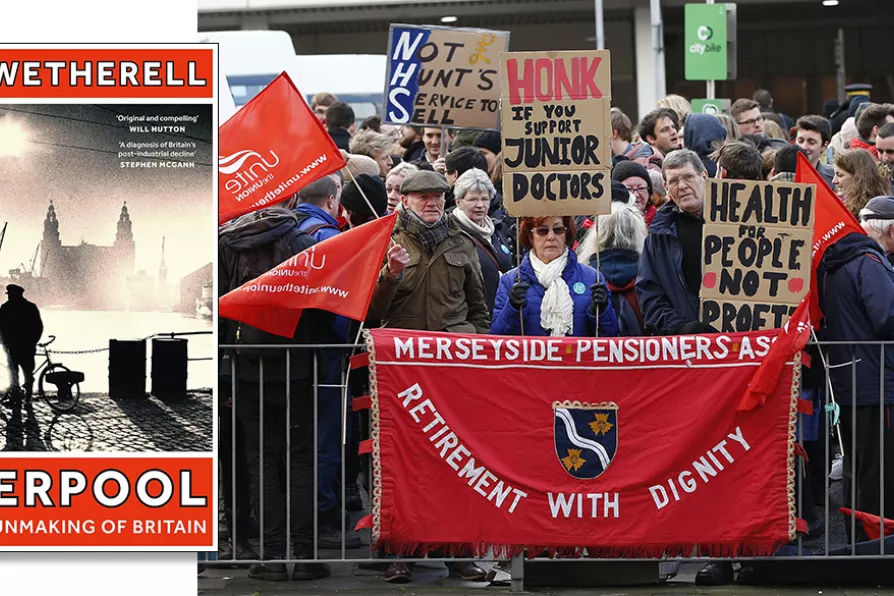STEPHANIE DENNISON and ALFREDO LUIZ DE OLIVEIRA SUPPIA explain the political context of The Secret Agent, a gripping thriller that reminds us why academic freedom needs protecting
Liverpool’s sell-by date
CHRIS MOSS welcomes a radical history that brings marginalised stories and overlooked people and agencies to the centre

 HONORABLE TRADITION OF PROTEST: Junior doctors on a picket line outside the Royal Liverpool Hospital, as thousands go on strike in a dispute with the government over new contracts, January 2016
HONORABLE TRADITION OF PROTEST: Junior doctors on a picket line outside the Royal Liverpool Hospital, as thousands go on strike in a dispute with the government over new contracts, January 2016
Liverpool and the Unmaking of Britain
Sam Wetherell, Head of Zeus, £25
USING Liverpool as a prism to reflect on the “unmaking” of Britain is a departure from most treatments of the city.
Liverpudlians have often represented themselves as apart from the nation, as internationalists and Atlanticists, as more Irish than English.
Similar stories

GEORGE FOGARTY is captivated by a brilliant one-man show depicting life in HMP Strangeways

KIM JOHNSON MP places the campaign in the context of the history of the working-class battles of the 1980s, and explains why, just like Orgreave and the Shrewsbury Pickets before it, justice today is so important for the struggles of tomorrow

As the UAE-backed RSF carries out drone strikes on humanitarian infrastructure in war-torn Sudan, the US sells more weapons to the UAE, writes PAVAN KULKARNI

Rich natural resources built Aberdeen twice, but today it lies almost abandoned, as our city faces a third major transition — and the renewable energy future threatens same old exploitation, warns LARA FLANNERY









